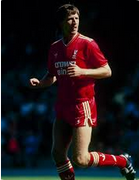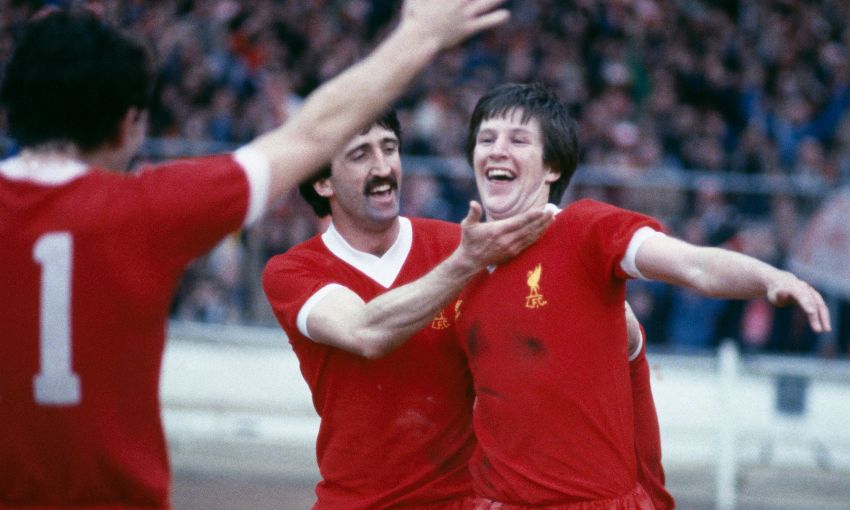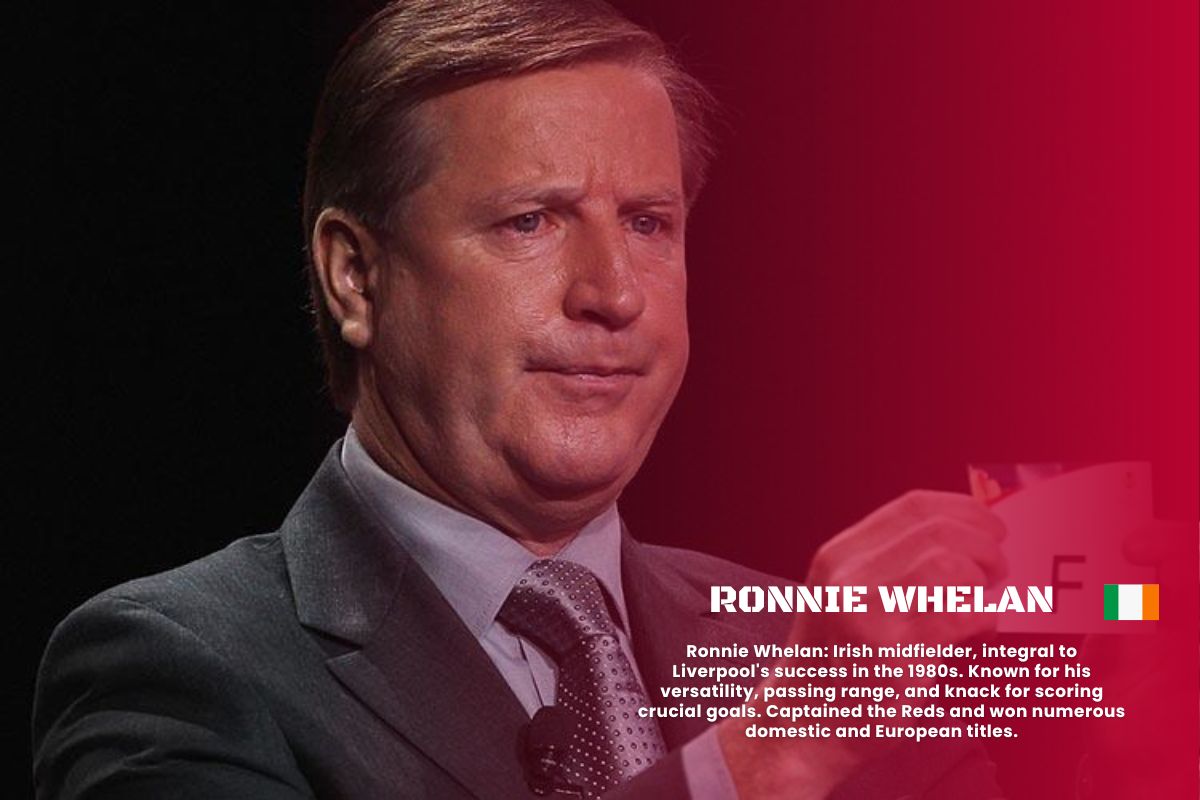
- DOB/Age: 25th Sept 1961; 62 years old
- Nationality: Irish
- Height: 1.75m
- Position: Midfielder
- Signed/Debut: September 1979; Liverpool FC
During his tenure at Liverpool FC under the stewardship of manager Bob Paisley and later Kenny Dalglish, Ronnie Whelan left an indelible mark on the club. As a versatile midfielder and occasional defender, Whelan played a pivotal role in Liverpool’s dominance throughout the 1980s, alongside stalwarts like Alan Hansen. From his debut in 1979 until his departure in 1994, Whelan’s skill and leadership were instrumental in the team’s success. Join us as we explore Whelan’s journey, highlighting his achievements and enduring impact at Liverpool FC.
Early Life and Career
Ronnie Whelan was born into a footballing family in Dublin, Ireland, on September 25, 1961. His father, Ronnie Sr., had been an Irish international and a prominent figure in St Patrick’s Athletic’s successful side during the late 1950s and early 1960s. Growing up, Whelan was immersed in the world of football, following in the footsteps of his father and older brother Paul, who played for Bohemian FC and Shamrock Rovers.
Whelan’s journey to professional football began with an unsuccessful trial at Manchester United. However, he made his mark in the League of Ireland, debuting for Home Farm on his 16th birthday at Tolka Park. Notably, Whelan showcased his talent by scoring for a League of Ireland XI against the Basque Country at the San Mamés in August 1979. Despite early setbacks, Whelan’s determination and skill would soon catch the eye of one of England’s most storied clubs.
Career at Liverpool
Ronnie Whelan’s arrival at Liverpool in 1979 marked the beginning of a storied career that would see him become an integral part of the team’s success. Initially signed by manager Bob Paisley, Whelan made his debut under the guidance of Paisley and later flourished under Kenny Dalglish’s management.
Deployed primarily as a midfielder, Whelan’s playing style was characterized by his versatility, skill, and work ethic. Teammates and coaches alike praised his contributions to Liverpool’s tactics. Former Liverpool player and manager Graeme Souness once remarked, “Ronnie had this incredible ability to read the game. He was always in the right place at the right time, making crucial interceptions and distributing the ball with precision.”
Graeme Souness
Ronnie had this incredible ability to read the game. He was always in the right place at the right time, making crucial interceptions and distributing the ball with precision
Ronnie Whelan’s tactical role within the team evolved over the years, adapting to different formations and opponents. His ability to seamlessly transition between defensive and attacking positions added depth to Liverpool’s gameplay. Alan Hansen, Whelan’s longtime teammate, remarked, “Ronnie’s presence on the field gave us a sense of assurance. He was not just a midfielder; he was a leader who commanded respect and inspired those around him.”
One notable display of Whelan’s leadership came during the 1988-89 season when he assumed the captaincy in the absence of Alan Hansen. In a season marred by the Hillsborough disaster, Whelan’s steadfast leadership both on and off the pitch provided stability during a challenging period for the club.
Throughout his career at Liverpool, Whelan’s contributions were pivotal to the team’s success, helping secure numerous league titles, FA Cups, and other honors. Despite facing injuries in the latter stages of his career, Whelan remained a respected figure within the club, tallying an impressive 493 first-team appearances and scoring crucial goals in key matches. His legacy as a Liverpool legend endures, with six league championships, three FA Cups, a European Cup, and three League Cup medals to his name.
Achievements, Moments, and Performances
One of Ronnie Whelan’s standout moments came in the 1982 League Cup final against Tottenham Hotspur at Wembley. With Liverpool trailing 1-0 late in the game, Whelan’s heroics turned the tide. He scored the equalizer late in regulation time and followed it up with the winning goal in extra time, securing a dramatic 3-1 victory and clinching the trophy for Liverpool. His performance showcased his ability to rise to the occasion when the team needed him most.
In the 1983 League Cup final against Manchester United, Whelan once again proved his mettle on the big stage. With the match deadlocked at 1-1 in extra-time, Whelan unleashed a thunderous shot into the net, securing a 2-1 victory for Liverpool and their second consecutive League Cup triumph. His goal not only secured the trophy but also exemplified his knack for delivering in clutch moments.

◉ Ronnie Whelan: Photo source link
Whelan’s leadership and resilience were on full display during the 1988-89 season, a challenging period marked by tragedy and adversity. In the aftermath of the Hillsborough disaster, Whelan took on the role of captain in Alan Hansen’s absence. Leading by example, he guided the team through tumultuous times, exemplifying courage and fortitude both on and off the pitch.
Another iconic moment in Whelan’s career came during the 1989 FA Cup final against Merseyside rivals Everton. With Liverpool trailing 1-0, Whelan orchestrated a comeback, setting up two crucial goals in a 3-1 victory. His instrumental role in securing the FA Cup, amidst the backdrop of the Hillsborough tragedy, further solidified his status as a Liverpool legend.
Throughout his illustrious career, Ronnie Whelan’s ability to perform under pressure and deliver match-winning performances endeared him to fans and teammates alike. His precise passing, tireless work ethic, and tactical acumen were instrumental in Liverpool’s success, earning him admiration and respect from across the footballing world. Whelan’s legacy at Liverpool is not only defined by his numerous trophies and accolades but also by the unforgettable moments and performances that immortalized him in the hearts of fans. From crucial goals to inspirational leadership, Ronnie Whelan’s contributions will forever be etched in the rich tapestry of Liverpool FC’s history.
Legacy and Impact
As a key figure during one of Liverpool’s most successful eras, Whelan epitomized the values of hard work, dedication, and leadership that define the club. His influence extended beyond the pitch, inspiring younger players and captivating the hearts of fans with his remarkable performances and unwavering commitment to the club’s cause. Whelan’s leadership during challenging times, such as the aftermath of the Hillsborough disaster, solidified his status as a revered figure among supporters.
In recognition of his contributions, Ronnie Whelan received numerous accolades, including six League championship medals, three FA Cups, a European Cup, and three League Cup medals during his time at Liverpool. His legacy continues to resonate within the club, serving as a testament to his enduring impact on Liverpool’s rich footballing heritage.
Life after Liverpool and Personal Life
Following his departure from Liverpool in 1994 after an illustrious 15-year career, Ronnie Whelan ventured into managerial roles, beginning with Southend United where he served as player-manager in 1995. However, his tenure was short-lived, and he was relieved of his duties after the club’s relegation from Division One in 1997. Ronnie Whelan continued his managerial journey abroad, working with clubs in Greece and Cyprus, including Panionios and Apollon Limassol. Notably, he achieved success with Panionios in 1999, guiding the team to the quarter-finals of the Cup Winners Cup, a historic feat for the club.
Transitioning into the media sphere, Ronnie Whelan became a prominent figure on RTÉ Sport’s soccer programming, providing punditry and analysis. His contributions extended to coverage of major football tournaments such as the FIFA World Cup and UEFA European Championship, showcasing his insights and expertise to audiences worldwide.
Outside of football, Ronnie Whelan remains active on the after-dinner circuit, engaging with fans and sharing anecdotes from his illustrious career. While details about his personal life remain relatively private, Whelan’s contributions to football and society continue to resonate, both through his media presence and potential philanthropic endeavors, embodying his enduring passion for the beautiful game and its impact beyond the pitch.
Conclusion
Ronnie Whelan’s journey at Liverpool FC epitomizes the spirit of “You’ll Never Walk Alone” and stands as a testament to unwavering dedication and enduring impact. From his early days to becoming a linchpin of Liverpool’s triumphs, Whelan’s legacy is woven into the fabric of the club’s history. His leadership, skill, and unyielding commitment continue to resonate, inspiring generations of fans who hold him dear as a true icon of Liverpool FC. As the anthem rings true, Whelan’s name echoes alongside it, forever intertwined with the enduring spirit of Liverpool’s story.
Read all other posts on Ronnie Whelan
Find the Latest News on Player Ratings | Transfers | Prematch | Postmatch
Stay tuned for more updates on Liverpool FC Times and Stories. Your thoughts are always welcome in the comments section. Thank you for your continued support!
YNWA (You’ll Never Walk Alone)!
The Liverpool FC Times Team
LiverpoolFCTimes.com
